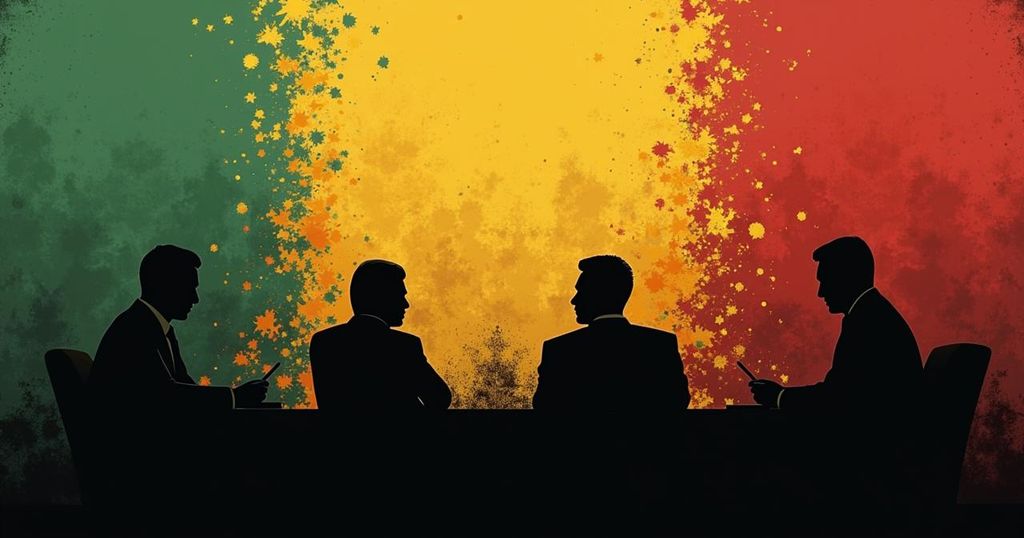Bolivia Joins South Africa in Genocide Case Against Israel at ICJ
Bolivia has officially joined South Africa’s genocide case against Israel at the International Court of Justice, alleging violations of the Genocide Convention. This intervention follows Bolivia’s severance of diplomatic ties with Israel last November due to the conflict in Gaza, and it adds to a coalition of countries pursuing legal action against Israel. The ICJ previously ruled that Israel must prevent genocide in Gaza, a decision dismissed by Israeli leadership.
Bolivia has officially aligned itself with South Africa in a significant case against Israel regarding alleged acts of genocide at the International Court of Justice (ICJ). The Bolivian government submitted its application for intervention on October 8, asserting that Israel’s actions constitute violations of the Genocide Convention. This intervention by Bolivia marks an addition to an expanding coalition of nations allied in this case, including countries such as Colombia, Libya, Spain, Mexico, Palestine, Nicaragua, and Turkey. In a demonstration of its stance, Bolivia severed diplomatic relations with Israel in November of the previous year, responding to the hostilities in Gaza. The Bolivian Deputy Foreign Minister, Freddy Mamani, articulated the government’s position, stating that the decision was made in “repudiation and condemnation of the aggressive and disproportionate Israeli military offensive taking place in the Gaza Strip.” Furthermore, the Bolivian government has committed to sending humanitarian assistance to Gaza as a further expression of its solidarity with those affected by the conflict. Earlier this year, the ICJ mandated that Israel must take all necessary steps to prevent genocide in Gaza and guarantee that United Nations-sanctioned investigators receive unfettered access to the area. However, Israeli Prime Minister Benjamin Netanyahu dismissed the court’s interim decision, labeling it “outrageous.” In subsequent months, South Africa has reiterated its call for the ICJ’s intervention, citing the dire humanitarian circumstances in Gaza. South African representatives have argued for emergency measures to halt Israeli attacks in the region, highlighting the threat to the survival of the Palestinian populace. Notably, international court rulings, while legally binding, lack enforcement mechanisms. In its filing, Bolivia emphasized its moral obligation to denounce genocide, reinforcing its commitment to international humanitarian standards. The ongoing conflict between Israel and Hamas, which escalated after the tragic events of October 7 last year, has resulted in severe casualties on both sides, including over 12,000 Israeli deaths and substantial humanitarian crises in Gaza. Reports from the United Nations indicate that over 40,000 lives have been lost since the initiation of hostilities, with Philippe Lazzarini from the United Nations Relief and Works Agency (UNRWA) noting that the residents of Gaza continue to suffer “unspeakable suffering.”
The International Court of Justice (ICJ) serves as a principal judicial body of the United Nations, and its role includes adjudicating disputes between states and providing advisory opinions on international legal questions. The ongoing threat of genocide remains a critical area of concern globally, with various nations increasingly voicing their positions on international humanitarian law. Bolivia’s recent decision to intervene in the case against Israel reflects a growing trend among states expressing discontent with Israel’s actions during the Gaza conflict, particularly in light of reported high civilian casualties and major humanitarian repercussions. The engagement of multiple nations in this legal endeavor highlights the international community’s intensified focus on potential human rights violations and the enforcement of the Genocide Convention.
In conclusion, Bolivia’s decision to join South Africa in the genocide case against Israel at the ICJ underscores the evolving dynamics of international law and humanitarian advocacy. The involvement of multiple nations signals a collective response to perceived injustices and a commitment to hold nations accountable under international legal standards. The humanitarian crisis in Gaza continues to provoke significant international concern, and the rulings of the ICJ, despite their non-enforcement nature, contribute to an ongoing dialogue about accountability and human rights in armed conflicts.
Original Source: www.aninews.in




Post Comment